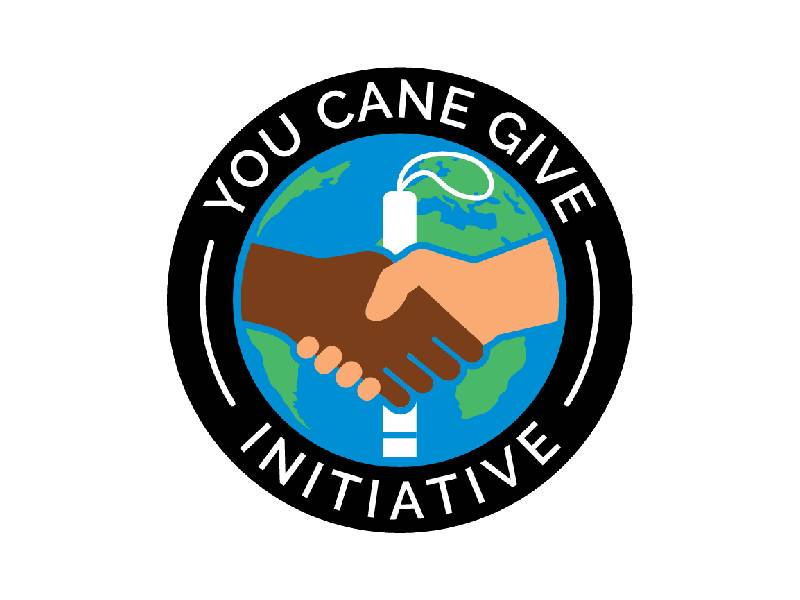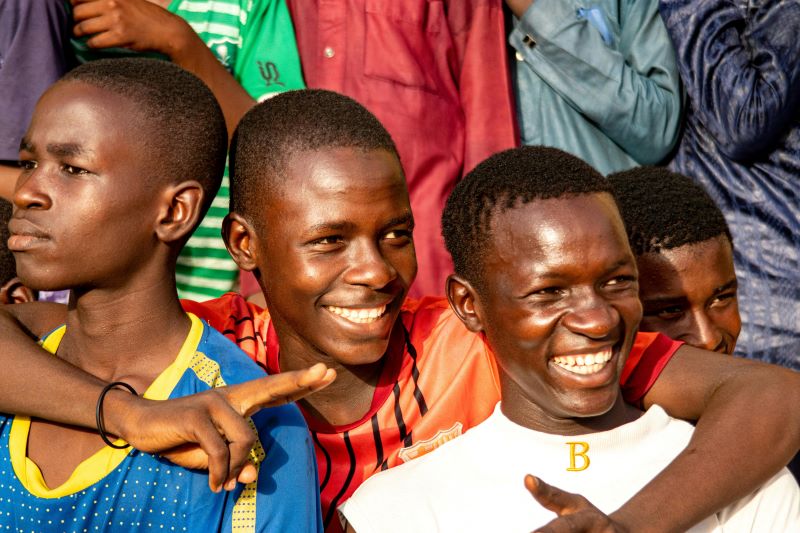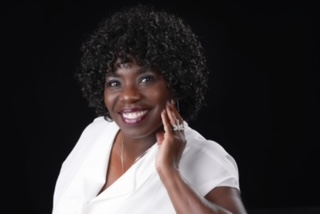Ghanaian native Nana B. of Kumasi Ghana was only seven years old when she underwent major eye surgery. Not only was there no improvement in her vision but in retrospect, she wonders if it was even necessary.
In her homeland, teachers and even family were often confused about how to support Nana. “My own mother thought I was faking,” she recalled. Nana said she was also forced to withdraw from high school as the school was not able to provide accommodations. And it would be more than ten years later when Nana came to Philadelphia that she was finally diagnosed with optic atrophy. a condition that leads to low-vision . With proper diagnosis, Nana was able to receive services, equipment and her first white cane. Now 35, Nana was able to continue her education and holds a Bachelor of Arts degree from the University of Pennsylvania.
Simone C. was born with Marfan syndrome which led to retina detachments in both eyes. Although Simone, who is in her thirties, has significant vision loss, she leads a vibrant and independent life in Philadelphia.
But in 2020, when she traveled to visit relatives in Jamaica, she broke her white cane on the first day of her arrival. She relied on sighted family members who although well-meaning were not accustomed to guiding her. “It was difficult, because my cane gives me my independence,” she said.
It would prove to be a teachable moment for Simone. Until then, she had no firsthand knowledge of the limited support blind people have in other societies. “It made me think of all the options I had back home. I had paratransit, free canes, and training,” she said. The Jamaica Society for the Blind is the primary organization providing services, but it has just one location in Kingston.
Stories like Nana’s and Simone’s are not unfamiliar to James Boehm, founder of You Cane Give Initiative, a nonprofit which since 2016 has restored 700 white canes and shipped them free of charge to 17 countries.
After losing his sight in 2010 from a self-inflicted gunshot wound, Boehm,41, started a business customizing white canes. It was in running Kustom Cane that he noticed an unusual dichotomy.
His customers were ordering canes as a backup or were replacing canes they had outgrown.
“It just made me realize on one hand here are people with extra canes and my research showed there were parts in the world where people would do anything for one white cane,” he said.
Boehm had learned that in other cultures such as India, Africa, and China, people with disabilities were often considered a financial burden to their families and lacked basic tools such as a white cane which serves as more than just a guide.
“This [white cane] is a symbol of autonomy and allows people to focus more on what they can do, rather than their disability,” Boehm said.
He added that not having the cane can contribute to a negative cycle about blindness. “They’re [blind people] are considered a burden because they can’t go anywhere but they don’t have a cane which provides that independence,” Boehm added.
In 2016, Boehm represented his Kustom Cane business at a National Federation of the Blind convention. It was there that he met John from Nigeria who shared that he was seventeen before he received his first white cane when he went to England for school. He told Boehm there was a need in Nigeria, as many of the blind there simply could not afford a cane, nor was there enough access to cane training.
That conversation led Boehm to ask customers for donations of collapsible canes. AT the end of the convention, he collected a dozen canes, some practically brand new and only a few needing repairs. He met another attendee who was heading back to a school for the blind in Nicaragua. Boehm offered him the canes; and so was the first delivery before You Can Give was officially a nonprofit.
Boehm began working his connections to collect white canes. “I spoke at organization meetings and used my business website to get the word out,” he said.
In 2017, You Cane Give made the semifinalist round of the Holman Prize, an international competition that awards up to $25,000 to a business or nonprofit that will empower the blind community. Boehm, with his background in customizing white canes pitched his plan to collect and restore damaged canes and ship them around the world. Although Boehm did not win the award, the mission now received worldwide awareness.
The endeavor is not without its challenges. One is dealing with unscrupulous officials who have either confiscated canes and sold them or have held them hostage for a “ridiculous tax.”
Boehm said they once sent a cane to a professor in Egypt who months later reported that she had not received it. You Cane Give shipped another cane. This time the professor was notified that she would need to pay $70.00 to receive it. You Cane Give covered the cost for her. Unfortunately, Boehm noted, sometimes shipments from the United States are easy targets.
You Cane Give makes every effort to both vet and fulfill as many requests as possible. When they receive an individual request, they try to connect with a nearby school or agency. “This way we can serve an entire community,” Boehm said.
At the e urging of Kenyan advocate Paul Mugambi, who is also blind, You Cane Give made it first trip to Kenya just before the pandemic in 2019. “He told me he loved what we were doing and that they needed us there,” Boehm said, adding that there was a “cane famine” in Kenya.
When the You Cane team arrived, Mugambi had assembled a group of trained volunteers ready to assist. He also connected Boehm and his team with both the Kenya Union of the Blind and the African Union of the Blind which helped with transportation and translators.
During the twelve-day trip, You Cane Give visited five locations, providing training and over one hundred white canes. Some received their very first cane. Others came using makeshift canes made from metal piping.
And there are many stories of changed lives.
He recalled meeting Moses during the team’s first trip to Kenya. According to Boehm, Moses had lost his sight during combat and was suffering from depression and feeling dejected. Moses received a white cane with Boehm providing mobility training. That was in 2019, the team’s first trip and just before the pandemic.
Boehm has remained in touch with Moses, who is now a staunch advocate for people with disabilities and for veterans. He is even part of a Swahili band and told Boehm of his commitment to combat stigmas around blindness.
One woman shared how grateful she and her friend were for their white canes, happy that now “we won’t fall into any more ditches!” Boehm was also told of a more tragic case which resulted in a fatality.
But Boehm fondly remembered the day about thirty Kenyans were out practicing their training. “Hearing all those canes tapping was like music to my ears,” he said.
Moments like these are only appreciated by being there.
The trip also revealed just how great the need is. The team went to a school in Machakos which is just outside of Nairobi to deliver thirty canes. The headmaster was appreciative but said the school had three hundred students and teachers that needed canes. “I really felt defeated. It broke my heart,” Boehm said.
The expense of vaccinations, travel, and lodging for a team of trainers, can make these trips costly. So the You Can Give team has been creative in getting these canes to those who need them. They have partnered with mission trips and connected with individuals like Johan, a businessman who recently delivered forty canes to a school for the blind in South Africa.
The Kenya trip also showed Boehme the measurable value in being on the ground, gaining trust and building meaningful relationships. “I saw how important it was to know people who were familiar with the country and could connect us with organizations there,” Boehm said.
So You Cane would like to repeatedly visit a location before moving on. They are hoping to return to Kenya and may plan a trip to South Africa. Until then, people receive a white cane care manual as well as a “white cane first-aid kit” (which is also sent with any canes that are shipped.)
You Cane provides preprinted labels allowing donors to send canes or cane parts at no cost.
Profits from Boehm’s Kustom Cane business go to You Cane Give Initiative.
“If we can equip people and train them… Now [sighted people] will see them go to school, church or to jobs, and not sitting at home. It changes what the world thinks about blind people,” Boehm said.
This article is made in collaboration with Broke in Philly.






